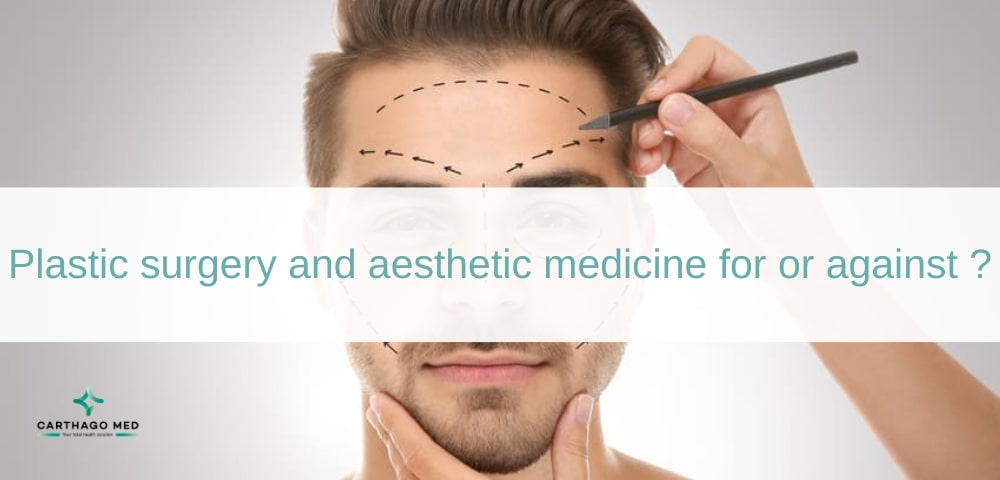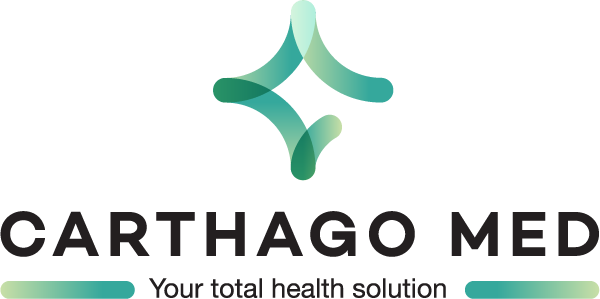
Plastic surgery and aesthetic medicine for or against ?
Resorting to cosmetic surgery can be explained by a general malaise that we experience on a daily basis, and which we can no longer conceal. In a society where youth is a sign of beauty, we cannot be simply satisfied with what nature has bestowed upon us. Nowadays, almost all our wishes could be met through aesthetic medicine and cosmetic surgery. For this reason, we shall evaluate the benefit/risk ratio for whether to undergo it or not.
AGAINST COSMETIC SURGERY?
Some people are not in a good health condition and/or do not tolerate general anaesthesia; therefore, undergoing surgery for purely aesthetic purposes can be risky. Also, be aware that most often, criticism related to cosmetic surgery comes from uninformed people or patients having unreal expectations. That is why it is important for the surgeon to evaluate the patient's psychological profile before the procedure. He then can decide whether to perform or reject the surgery. Also, the patient should be informed of the different steps of the procedure. The risks of cosmetic surgery are those of any surgery. Complications can occur even if surgical performance was respecting of all the rules and protocols. The opposition to cosmetic surgery is rooted in various concerns, both ethical and practical. One primary argument centers around the perpetuation of unrealistic beauty standards by the cosmetic industry. Detractors argue that the relentless promotion of certain beauty ideals can contribute to widespread body dissatisfaction and low self-esteem among individuals who may feel pressured to conform to these standards. This psychological impact is often considered a significant drawback of the cosmetic surgery trend. Critics also express apprehension about the safety of certain cosmetic procedures. While non-invasive treatments are generally considered safer than traditional surgeries, there are still potential risks and complications associated with them. Procedures such as injectables and dermal fillers, while popular for their quick results and minimal downtime, may have side effects ranging from mild swelling to more severe complications if not administered by qualified professionals.
Another major concern is the addictive nature of cosmetic enhancements. Individuals who undergo one procedure may find themselves on a perpetual quest for perfection, leading to a cycle of continuous treatments. This has raised ethical questions about the role of practitioners in managing and guiding patients towards responsible and healthy decisions, rather than encouraging unnecessary interventions. Beyond these ideological concerns, there is a practical skepticism about the qualifications of practitioners and the regulation of the industry. The proliferation of clinics and practitioners without proper accreditation or experience raises the risk of substandard treatments and potential harm to patients. This has sparked calls for more stringent regulations and oversight to ensure the safety and efficacy of cosmetic procedures. Moreover, there's a debate about the effectiveness and longevity of certain treatments. Some argue that the promises of wrinkle reduction, skin tightening, and other aesthetic improvements may be exaggerated, leading to disappointment among patients who don't achieve the desired results. The lack of comprehensive, long-term studies on the effects of many cosmetic procedures adds to this uncertainty.

FOR COSMETIC SURGERY?
While the realm of aesthetic medicine has made significant strides in providing non-invasive solutions, there persists a strong appeal for the transformative potential of traditional cosmetic surgery. For those inclined towards the more permanent and immediate changes, surgical interventions continue to be a preferred choice. One of the primary attractions of cosmetic surgery is the precision it offers in reshaping and enhancing features. Procedures like lip augmentation and the non-surgical nose job can achieve remarkable results, but some individuals seek the permanence and exactness that surgical techniques provide. This inclination is particularly notable in cases where individuals desire more significant alterations. Certain aesthetic goals are often considered best achieved through surgical means. Procedures like dermal fillers and wrinkle relaxing treatments have their non-surgical counterparts, yet some individuals opt for the tried-and-true methods that have long been regarded as gold standards in the field of aesthetic enhancement. Cosmetic surgery allows for a more comprehensive approach to aesthetic transformation. Whether it's a combination of procedures or a single surgery, individuals may choose surgical interventions to address multiple concerns simultaneously. This level of customization is particularly appealing to those seeking a holistic change in their appearance.
It's essential to note that surgical techniques have evolved significantly, contributing to reduced downtime and improved safety. Minimally invasive procedures, advancements in anesthesia, and refined surgical methods have collectively made cosmetic surgery a more attractive option for those who may have been deterred by concerns about recovery and potential complications.Even within the realm of cosmetic surgery, the holistic approach championed by experts like Dr Barbara Kubicka at Clinicbe London is gaining prominence. The emphasis on the patient as a whole, coupled with individualized advice on nutrition, hydration, and lifestyle, ensures that individuals considering surgery are well-prepared and supported throughout the process. As technology advances, the future of cosmetic surgery holds promise for even more refined procedures with minimized invasiveness. These innovations may bridge the gap further between surgical and non-surgical options, providing individuals with an expanded array of choices for achieving their aesthetic goals.









